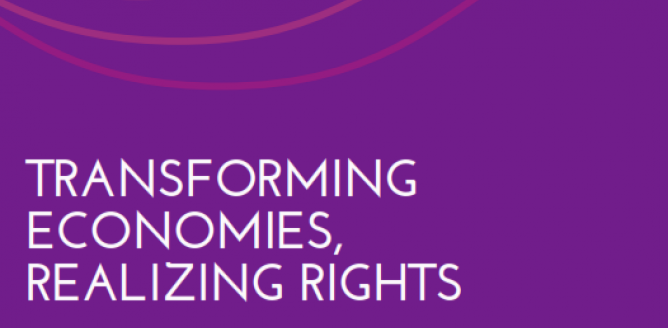UN Progress of the World’s Women 2015-2016 report
This report focuses on the economic and social dimensions of gender equality which includes the right of all women to a good job that has fair pay and safe working conditions and adequate senior pension and health care without discrimination based on factors such as socioeconomic status, geographic location and race or ethnicity.
Key Findings:
• Substantive Equality for Women: The challenge for public policy: Laws that establish women and men’s equal rights are an important basis for gender equality, but for women to enjoy their rights in practice, structural barriers and discriminatory social norms need to be addressed.
• Transforming work for women’s rights: Paid work can be a foundation for women’s empowerment, but only when it is decent. Too often, women are trapped in low paid, poor quality jobs, with no social protection or support for unpaid care work. On average, women spend 2.5 times more time on unpaid care and domestic work than men.
• Making social policy work for women: The best way to realise women’s economic and social rights is through a comprehensive approach to social policy, combining universal access to services such as healthcare, with pensions and income support for families. Women are over-represented in the world’s population that has partial to no social protection.
• Towards an enabling macroeconomics environment: Without women’s unpaid care work, there would be no labour force and the global economy would grind to a halt. Yet the unpaid economy is rarely taken into account in economic policymaking.


















